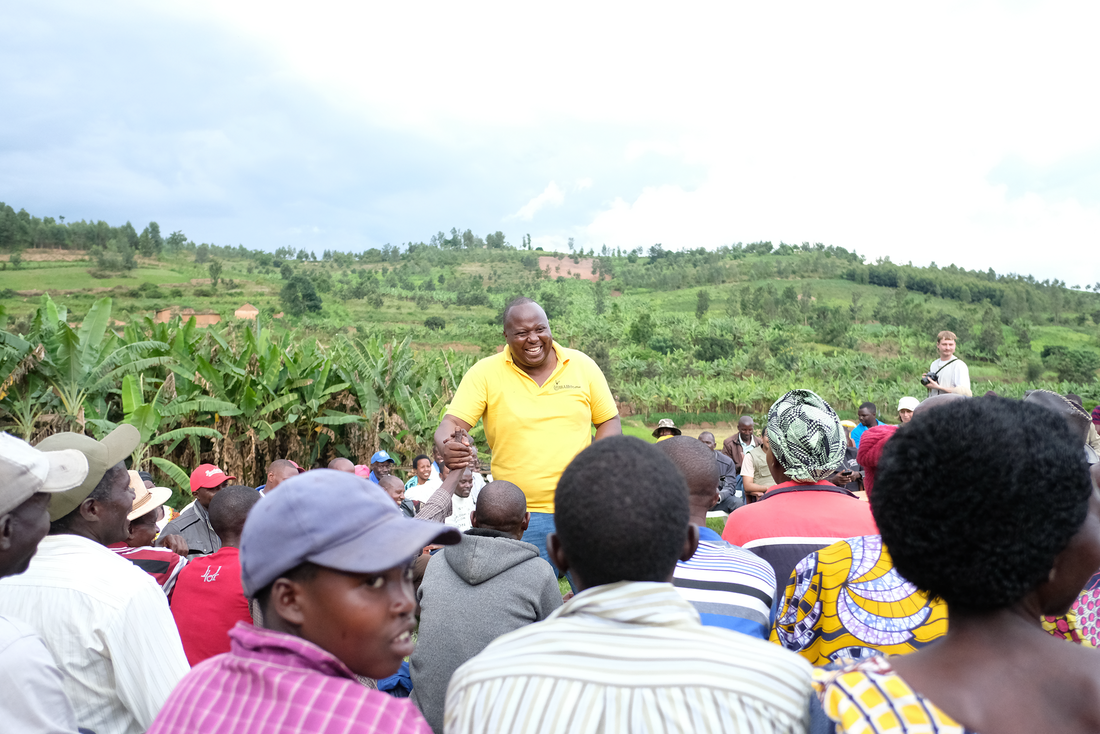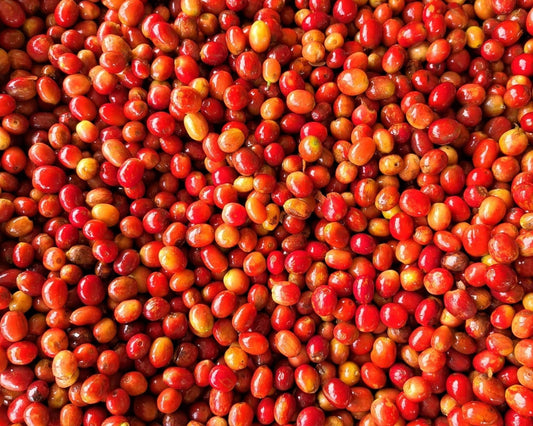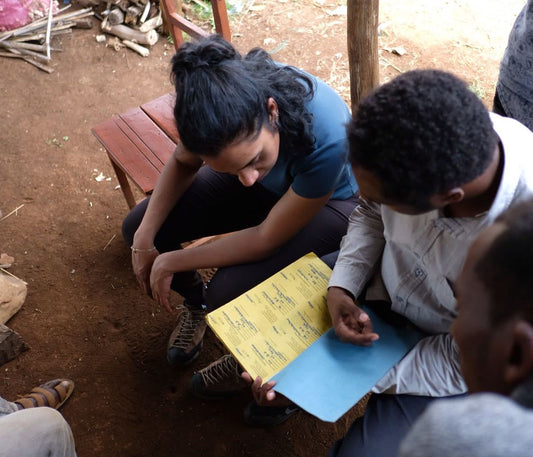One of our most important principles is that of long-term, equitable partnerships. This means we work directly with all producers (farmer groups, cooperatives and exporters) to achieve ongoing improvement in quality, income for farmers and sustainable production. Our business model is built around mutual trust and loyalty. Our loyalty towards producers, their loyalty to us and your loyalty as a customer online or in our shops, making long-term, predictable partnerships possible. But where do these amazing partners come from, how does Wakuli find them and what does it take to get the coffee to your cup?
We will take you along the trip that is our partnership development.
Fine tuning our calendar and our profiles
Every producing country has its own coffee calendar. When is the rainy season? When does the coffee flower? When are the cherries ready for harvest? How long does the coffee take to dry and how much time is needed for processing and shipping? All these factors determine when a coffee is available for us to drink in Amsterdam. Because we have a monthly changing offer of single origin coffees as well as two blends, one single origin Robusta and four different coffees for our pods, you can imagine that it's quite a puzzle to set up a watertight coffee calendar.
Every once in a while we look for a new coffee. Because it fills a gap in the calendar or because a new origin has a taste profile we do not yet have in our assortment. But the most important motivation for new coffee is the potential impact on farmers. Disconnected producer groups and upcoming or unknown origins with high potential are exactly what we are always looking for.
Exploring the options
Wakuli is a social enterprise. The people working here are not your typical coffee traders, roasters or marketeers. We all have more idealistic motivations for doing our work. We are known for this and we have a track record for long term-partnerships, support for quality improvement, and a great price for farmers. Through coffee fairs, online platforms, and our own networks of local support organizations, we are constantly made aware of potential partnerships. 
First contact and considerations
If a producer group is looking for a new partner and is not yet connected (no direct export for instance) we get in touch. These first conversations are always very polite and exploratory. During these conversations we find out what is the total production, what is the current quality, what are the challenges, and what is the potential quality of the coffee if these challenges are tackled. If the producers and Wakuli agree there is a “value fit” about what is needed to secure the future of coffee we take the next step. This value fit refers to ambitions to improve livelihoods of farmer families and take care or restore nature.
The proof is in the pudding (or rather in the coffee)
We do not go around and ask every cooperative or exporter to send us samples (small quantities of the coffee we would be buying) because it is costly for them and it often gives the impression that a sale will be a logical next step. We do not take this step lightly. So only when we are confident that a partnership has potential do we ask for a sample. And this is always a special moment. In a lot of cases Kerissa, our sourcing manager, has been in contact with a potential partner for over a year before a sample finally arrives. Finally tasting the coffee is exciting and we will be standing around the cupping table (picture) with our fingers crossed.
Tying the knot
If all is well and the coffee has the potential to be a Wakuli coffee, we will get into a serious conversation with producers to decide the volume and set a price. And find a party that is able to take care of shipment.
This is always a sensitive moment for us because we will want information about the price of the coffee when it is on board the ship as well as the price farmers get for their cherries. This so-called farmgate price is central in our partnership. It allows us to measure our impact on farmer income and compare it to other buyers. It requires some level of trust for cooperatives or farmer groups to share this information. They need to understand our intentions and are often suspicious and rightfully so. Many buyers are not interested in the well being of producers so our approach is often new to them.
Sealing the deal
When all is agreed, we set up the contracts, involve the exporter and shipping companies for all the formalities, and get the coffee on its way. In this phase we will receive one more sample to assess if the final harvest is in line with the samples we tasted months before. If so, the coffee will go onto the ship and on its way to Antwerp. Some weeks later it's ready for roasting and we will offer it as a Discover monthly to our subscription customers and in our shops.



